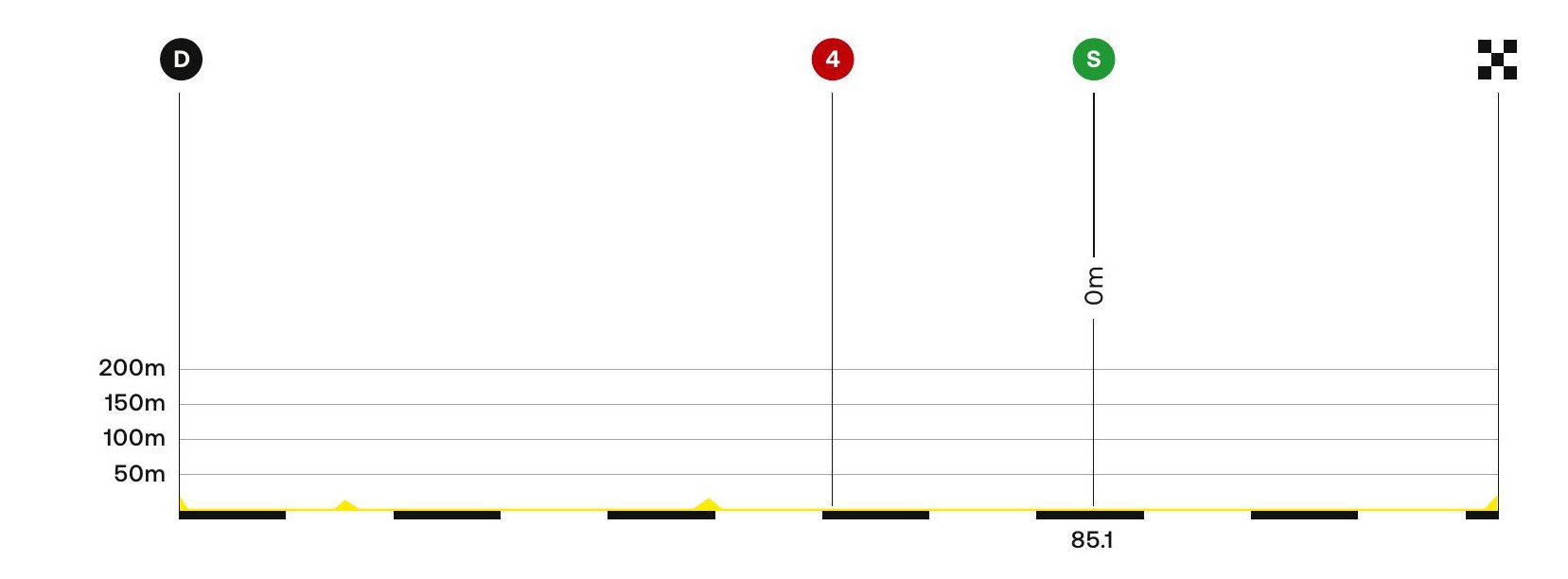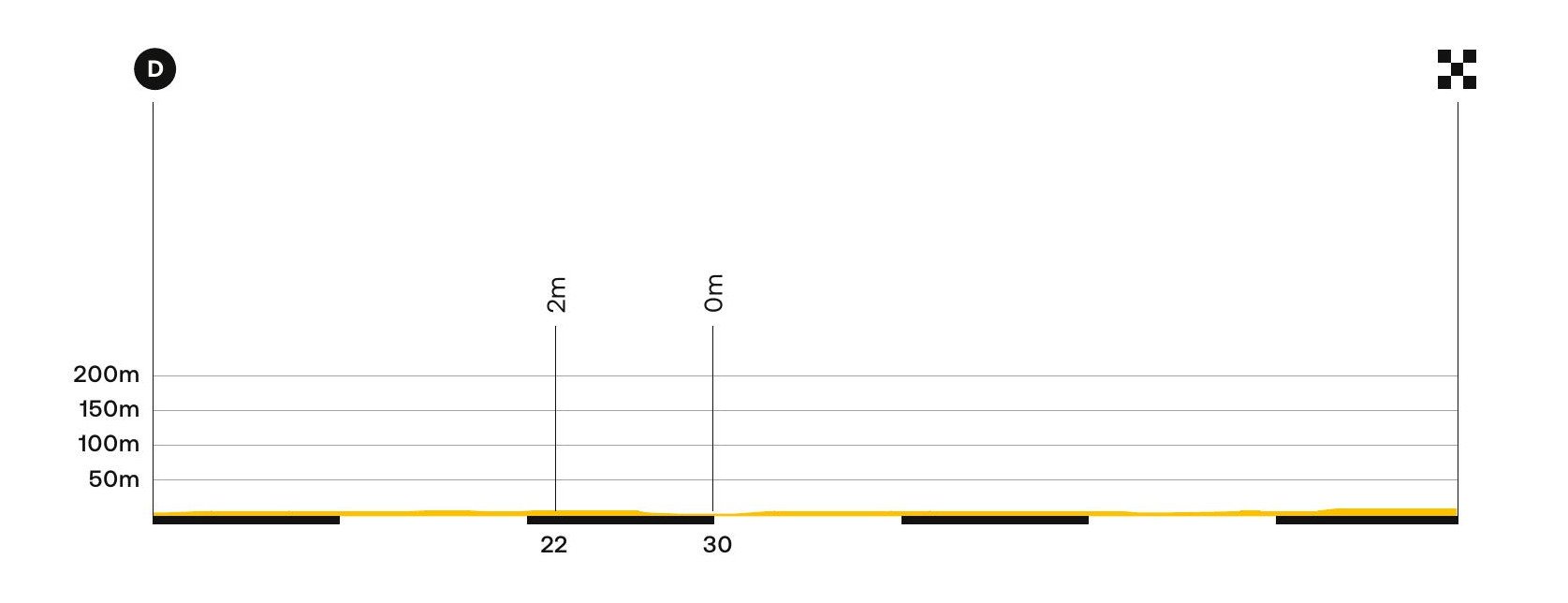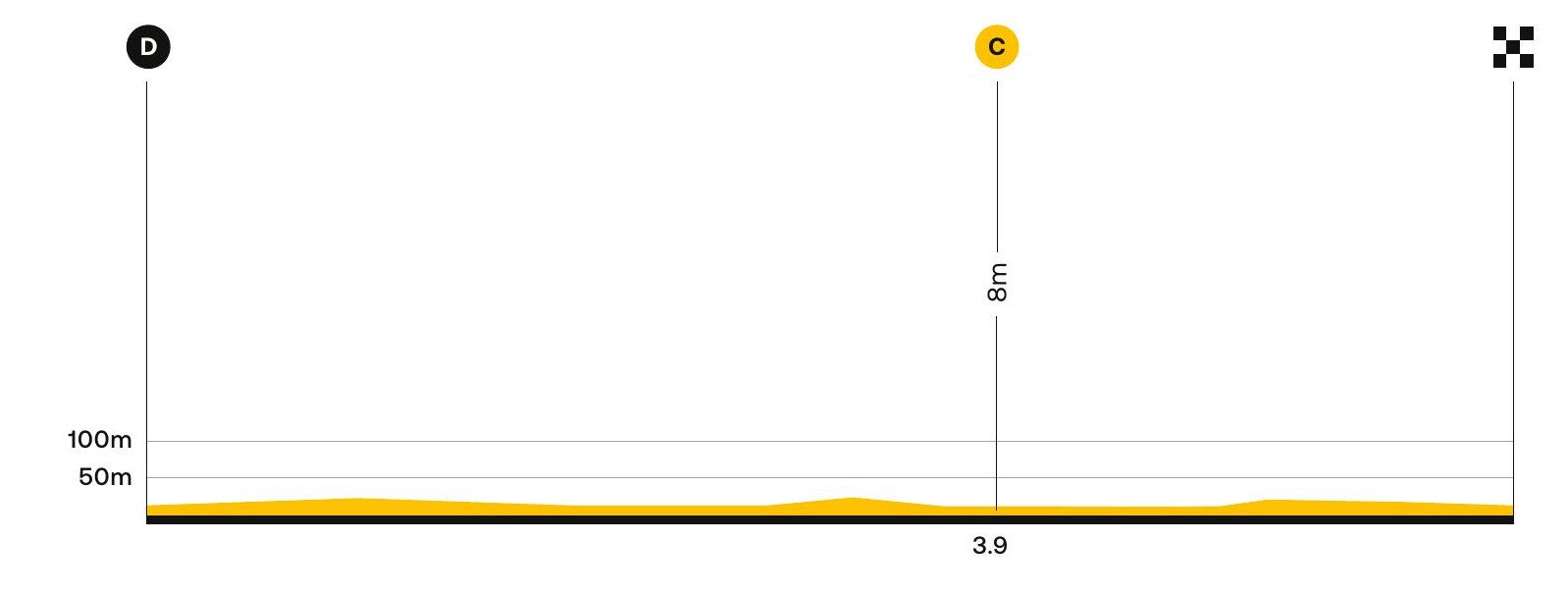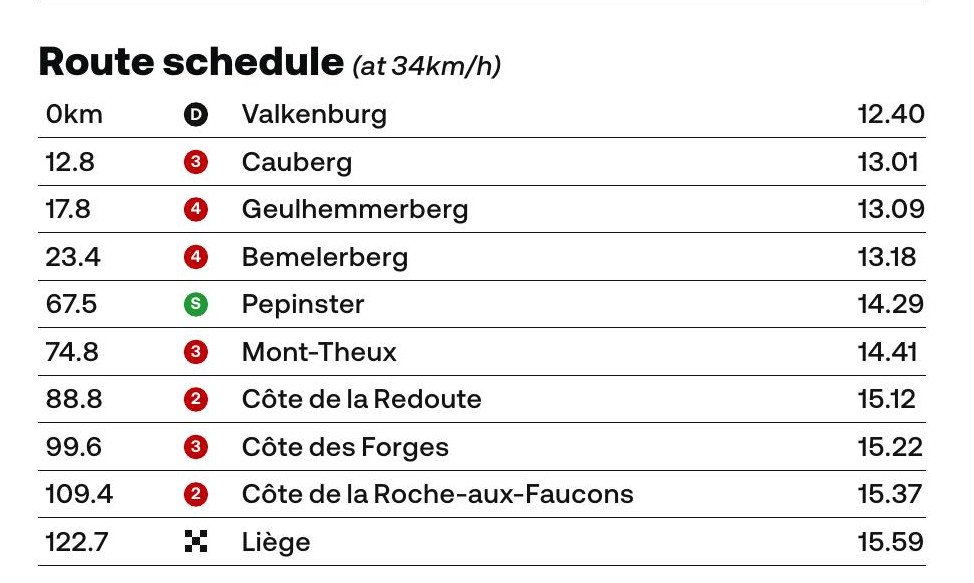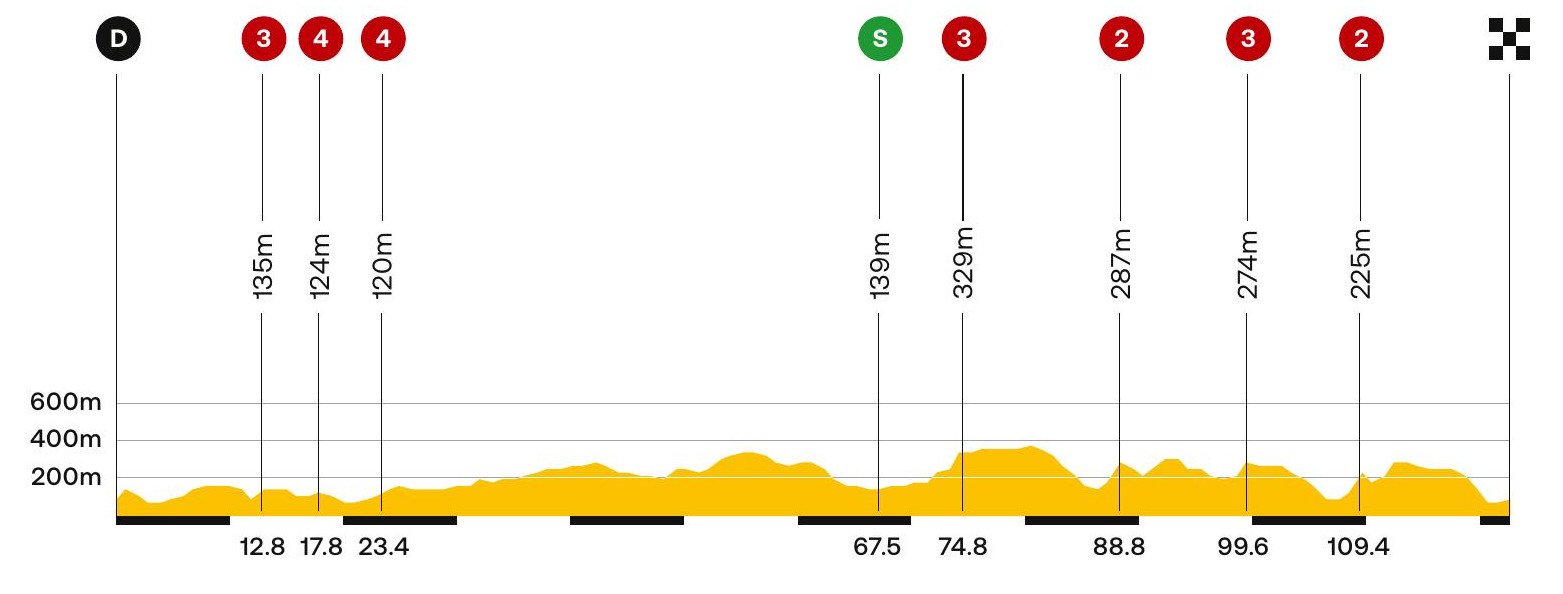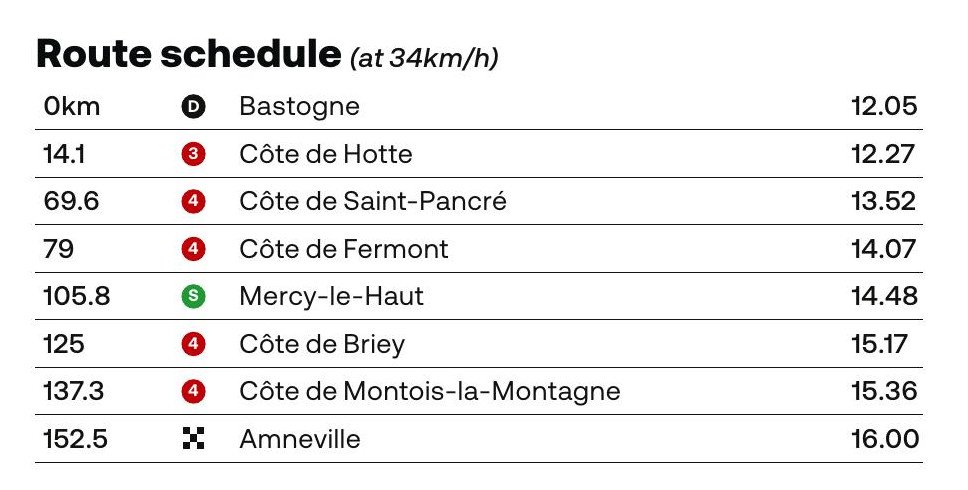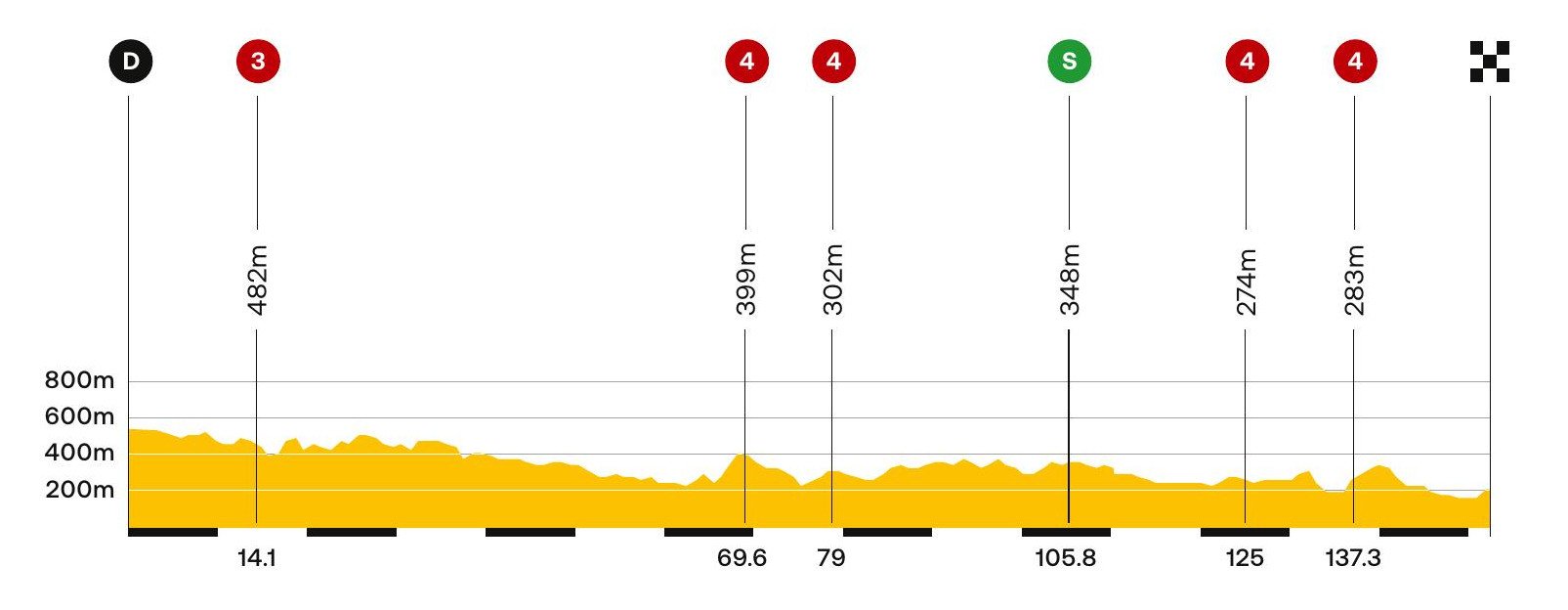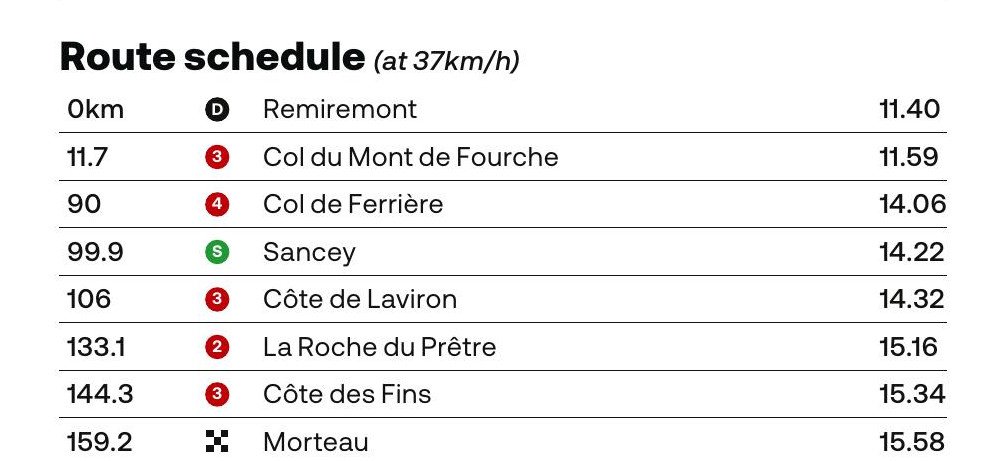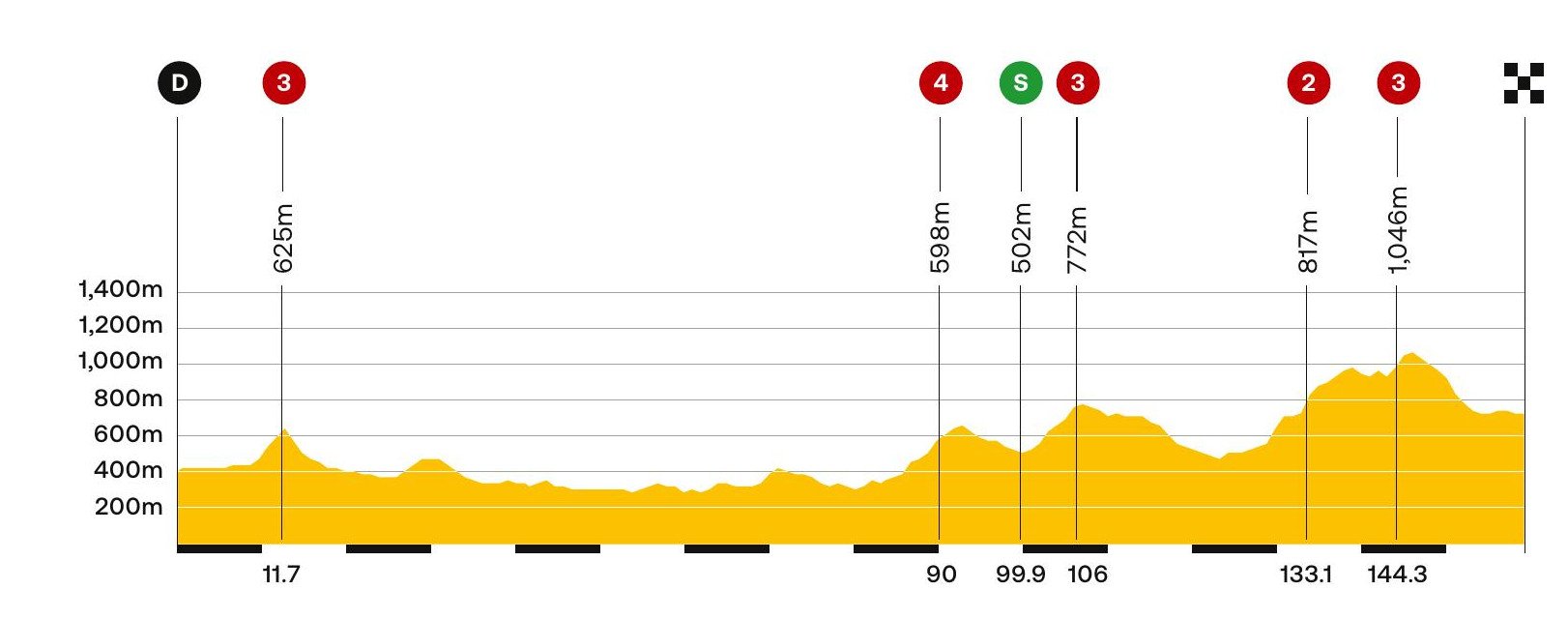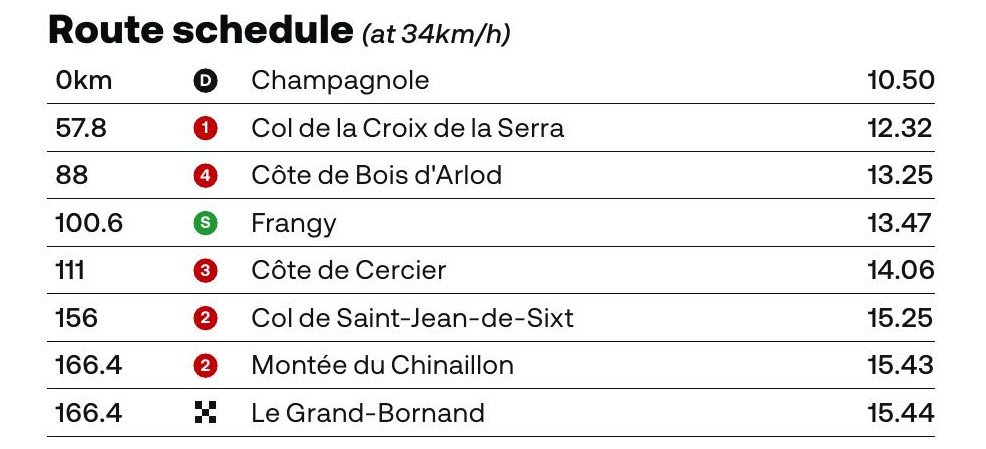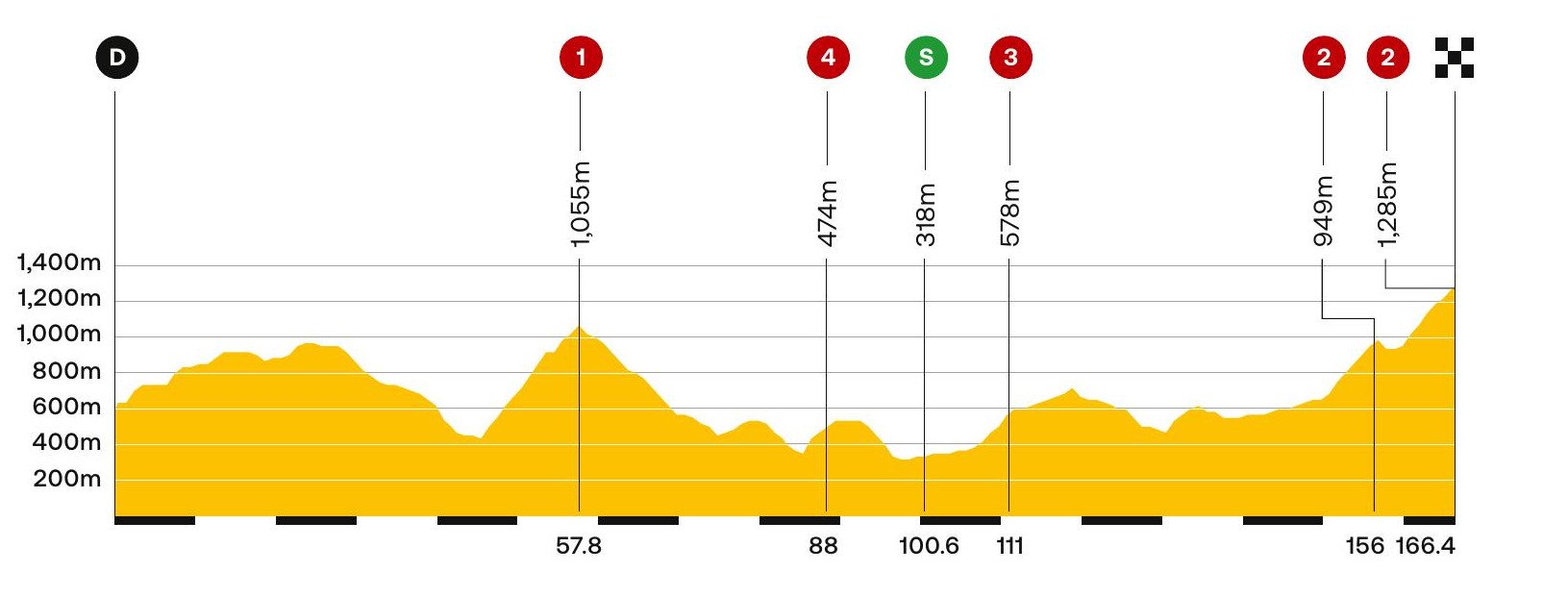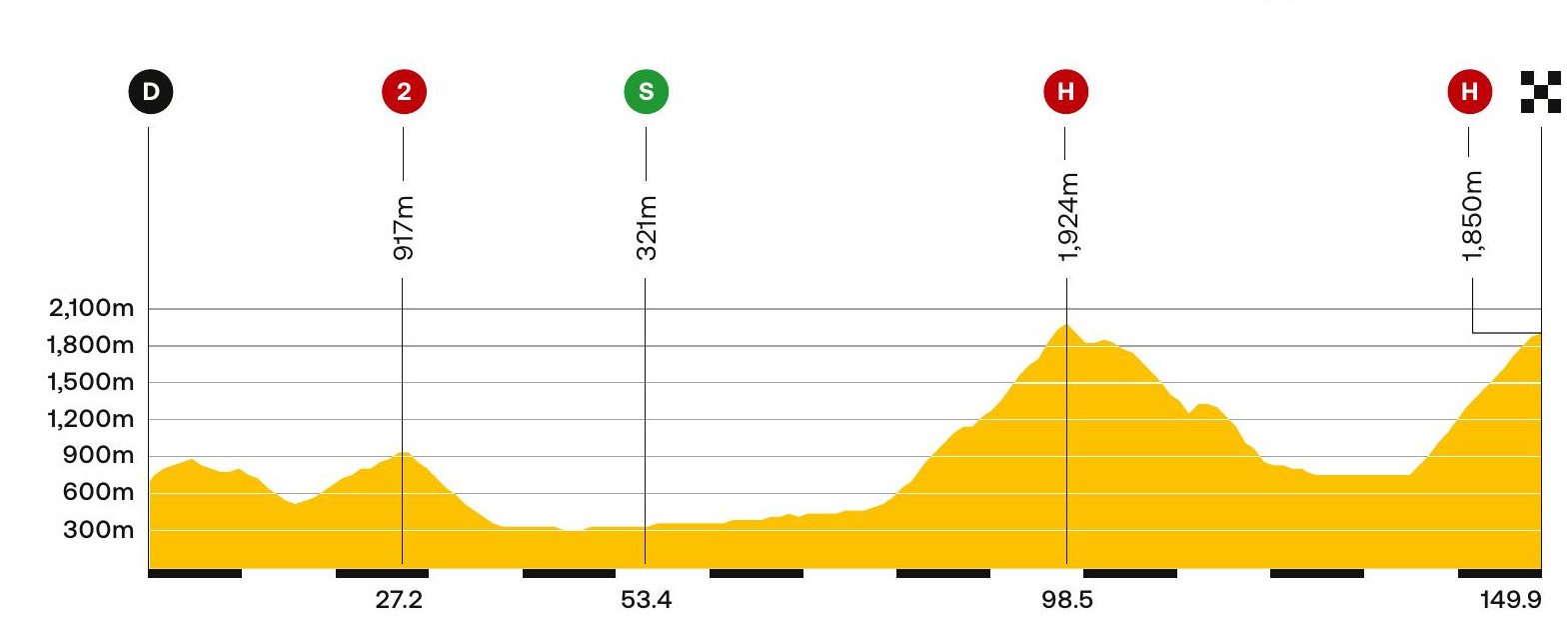Tour de France Femmes 2024
Stages

01 Rotterdam – The Hague
12 August / 123km
Did you know?
Generous hosts
Including the Tour de France, this will be the seventh time the Netherlands has hosted the Grand Départ
Smart money
Going Dutch
Dutch sprinter Lorena Wiebes (Team SD Worx-Protime) to win her fourth Tour de France Femmes stage

The Paris Olympics, which takes place this summer during the dates that the Tour de France Femmes has taken place since its 2022 launch, has pushed the race back in the calendar by three weeks. With a Grand Départ in the Netherlands city of Rotterdam, this will be its first start outside France, and is a joint project with both The Hague and Dordrecht, which hosts the start of tomorrow’s stage. The winners of both editions of the race so far, Annemiek van Vleuten and Demi Vollering, are Dutch – the country is the dominant powerhouse of the women’s peloton, which made Netherlands the obvious choice. Coincidentally, it was Amsterdam, the capital up the road, that hosted the first Tour de France start outside of France, in 1954.
In this part of the country, stage 1 is a characteristically flat affair from start to finish. It begins with a 40km loop that includes two trips through a new 950m tunnel beneath the River Scheur – the race will be its grand opening. “The riders will then find themselves in flat and wind-exposed terrain, the route running between tulip fields and through urban areas,” says race director Marion Rousse. “The last five kilometres, which are wide and free of significant difficulties, will lead to a final straight on an avenue that’s perfect for a bunch sprint.”
02 Dordrecht – Rotterdam
13 August / 69.7km
Did you know?
Reign of terror?
‘Tashkent Terror’ Djamolidine Abdoujaparov won the sprint in the last split stage, the first of 9 stage wins
Smart money
Kool ’n’ the gang
Charlotte Kool (Team DSM-Firmenich PostNL) to finally get the sprint win she came so close to last year

Today features something that the Tour de France used to do regularly but has not been seen in decades: a split stage. The morning sees the shortest of short sprint stages, across a hair under 70km where the profile again makes barely a ripple. We begin in the Netherlands’ oldest city of Dordrecht, built on the water close to De Biesbosch National Park and the home town of 2021 world cyclo-cross champion Lucinda Brand. The route loops to the finish in Rotterdam, which is barely 30km away to the northwest.
Rotterdam cements its close relationship with the Tour de France, which has hosted both a Grand Départ of the men’s race (in 2010, a prologue won by Fabian Cancellara) and a stage finish in 1973. Once over the finish line, the riders’ warm-downs will be especially needed, with a pivotal time trial in the afternoon almost certainly precipitating a change in the yellow jersey.
“With two stages on the menu in a single day, the riders will be reviving a tradition abandoned by the Tour de France in 1991,” says Rousse. “The morning brings this short but intense road stage, which will be subject to the vagaries of the wind and constant changes of direction, for a probable sprint finish on Boompjes, a wide avenue lined with skyscrapers.”
03 Rotterdam – Rotterdam
13 August / 6.3km
Did you know?
Eyes on the prize
A total of €250,000 prize money is on offer at the race. At the Tour de France the men share €2.3 million
Smart money
Dy hard
Chloe Dygert (Canyon//SRAM) to add to her enviable time trial victory collection over a distance she enjoys

While the first two sprint stages offered time bonuses (10, 6 and 4 seconds for 1st, 2nd and 3rd), a rider winning both will find their yellow jersey under threat this afternoon, even in a time trial of just 6.3km (which is really more prologue length). Chloé Dygert, the Canyon//SRAM rider who won both the World Championship time trial and, more pertinently, the 3km World Track Individual Pursuit in 2023, will fancy her chances of taking yellow, if selected.
The American didn’t ride either of the previous editions of the race as she recovered from a terrible crash in the time trial of the 2020 Worlds. She’s now back in fine fettle, and finishing second in the points classification competition at last year’s Giro shows that she’s ready for the world’s biggest women’s race. Marlen Reusser, winner of the time trial in last year’s Tour de France Femmes and the European Championships TT, should also figure.
“This short and intense time trial should suit the most powerful of the riders,” says Rousse. “The only slight rises on the course will be the two major bridges, Érasme and Guillaume. There are a few right-angled bends as the course passes the town hall and the maritime museum, but it’s mainly on big boulevards and the winner could average close to 50km/h.”
04 Valkenburg – Liège
14 August / 122.7km
Did you know?
Road trippers
The 2024 race visits three countries – the Netherlands, Belgium and France – and is the first time it’s left the latter
Smart money
Built to last
Lizzie Deignan (Lidl-Trek) is built for this sort of terrain, as a Liège– Bastogne–Liège Femmes winner

The flatlands of the Netherlands are behind us as the peloton moves to tougher terrain. If the profile of today’s stage looks like something from the Ardennes Classics one-day races of the spring, it’s because that’s exactly what it is. This 122km route cherrypicks highlights from both the Netherlands Amstel Gold Race and Belgium’s Liège-Bastogne-Liège.
“Combining the difficulties of [both races] will make this stage very challenging,” says Rousse. “At the finish on the Quai des Ardennes, the finale, tackled via Mont-Theux (2.8km at 5.6%), will have put the peloton to the test following the climbs of the Côte de la Redoute, Côte des Forges and Côte de la Roche-aux-Faucons.” We begin in Valkenburg, where the 2012 Road World Championships finished. The peloton first tackles a trio of climbs -Geulhemmerberg and Bemelerberg (twice) and the Cauberg, which brings Amstel Gold to a climax. The race crosses the border into Belgium at around 43km and summits La Redoute at 88. From there the finish into Liège is the same as the one-day race in April – 34km up and over climbs Côte des Forges and Côte de la Roche-aux-Faucons. All told the stage is 21km shorter than the Classic, but will be no easier, sandwiched as it is in the middle of the biggest stage race of the year.
05 Bastogne – Amnéville
15 August / 152.5km
Did you know?
Serial winner
Lizzie Deignan has 43 career wins to her name, including the World Championships in Richmond, Virginia in 2015
Smart money
Back to her best
Marianne Vos (Visma Lease a Bike) enjoyed a fruitful first half of the year and on current form will arrive in her best shape in years

Despite being characterised as a ‘flat’ stage in the race road book, with over 2,000 metres of elevation it’s hardly in the same ballpark as the pancake-flat stages that opened the race in the Netherlands. Today starts in Bastogne, of Liège-Bastogne-Liège fame and where that women’s Classic begins. While it might not be as hard on paper as yesterday, and there are certainly fewer punchy climbs in the middle to late kilometres to allow a more select group to get away, the finish into Amnéville is uphill, setting up a grand finale.
If stage 4 hasn’t gone her way, Lizzie Deignan (Lidl-Trek), winner of Liège-Bastogne-Liège in 2020 and who has hoovered up Classics through her career, will have an eye on today. While she made her debut in the race last year, she was still working her way back to form after the birth of her second child so should arrive in better form this year.
“The very undulating route, featuring more than 2,000m of vertical gain and regular changes of direction, should produce a dynamic stage,” says race director Marion Rousse. “Punchy riders will relish this test, and especially the finish, which will be located in front of the Amnéville thermal baths, at the top of a challenging final kilometre (a 6% gradient to start with, then between 3 and 4% up to the line).”
06 Remiremont – Morteau
16 August / 159.2km
Did you know?
Dirty dozen
The prolific Pauline Ferrand-Prévot has won 12 world titles across five disciplines of cycle sport. Her only road title came in 2014
Smart money
Jules crowned
Juliette Labous (Team DSM-Firmenich PostNL) to delight her home crowd with her biggest win yet

We’re into the mountains with the first of three stages fighting gravity. We begin in the Vosges mountains, although the race avoids any of the major climbs of the region. The race opens in the town of Remiremont, home to the UC Remiremont cycling club which counts among its members Pauline Ferrand-Prévot, a world champion across road, cyclo-cross, gravel and cross-country mountain biking. The real challenges today come later in the stage, once we get into the Doubs region.
“After leaving the picturesque setting of Remiremont and heading up the Moselle valley, the peloton will pass through the home town, Melisey, of Thibaut Pinot [recently retired men’s pro], and then his birthplace, Lure,” says Rousse. “Beyond the magnificent Cirque de Consolation, the first test in the Jura massif, the route features two significant ramps heading into the finish (5.5km at 5.6% and 1.8km at 6.9%). Beyond the summit, which takes the riders beyond 1,000m altitude, there’s a fast descent then a flatter run to the finish line in Morteau.
This watch-making town is also a cycling town, hosting the Tour de l’Avenir and Tour de Doubs. The cycling club VC Morteau-Montbenoit has seen current pros such as Juliette Labous and George Bennett pass through its ranks.
07 Champagnole – Le Grand-Bornand
17 August / 166.4km
Did you know?
Mountain madness
In just eight stages this year’s Tour de France Femmes visits four mountain ranges: the Ardennes, Vosges, Jura and the Alps
Smart money
Rider to beat
Demi Vollering (Team SD Worx-Protime), the defending champion, is a class above on this terrain

Today begins in the thick of the Jura mountains in Champagnole before transitioning to the Alps by the finish – the first time that the Tour de France Femmes has visited the most famous mountain range in professional cycling. “The longest stage of this 2024 edition will begin with a number of smallish hurdles, plus the long haul up the Col de la Croix de la Serra (12km at 5.1%), from the Saint-Claude side,” says Rousse. “It concludes with a new and steep finish at Chinaillon (7km, 5.1%), an authentic hamlet with traditional chalets on the flanks of the Col de la Colombière.”
Le Grand-Bornand, a mountain town in the Haute-Savoie, has become a familiar staging post of the men’s Tour de France this century, hosting six finishes, including the first, in 2018, of home favourite Julian Alaphilippe’s six wins. The town can be approached from numerous directions, the toughest being off the summit of the testing Col de la Colombière to the northeast. From the south, the Col de la Croix Fry is marginally easier. Today’s route adds a new Tour climb into the mix, Chinaillon. At 5.1% for 7km it looks simple on paper, though after 167km – pushing the limits for length of a Women’s WorldTour race – it’ll feel considerably harder as the race for the yellow jersey hots up.
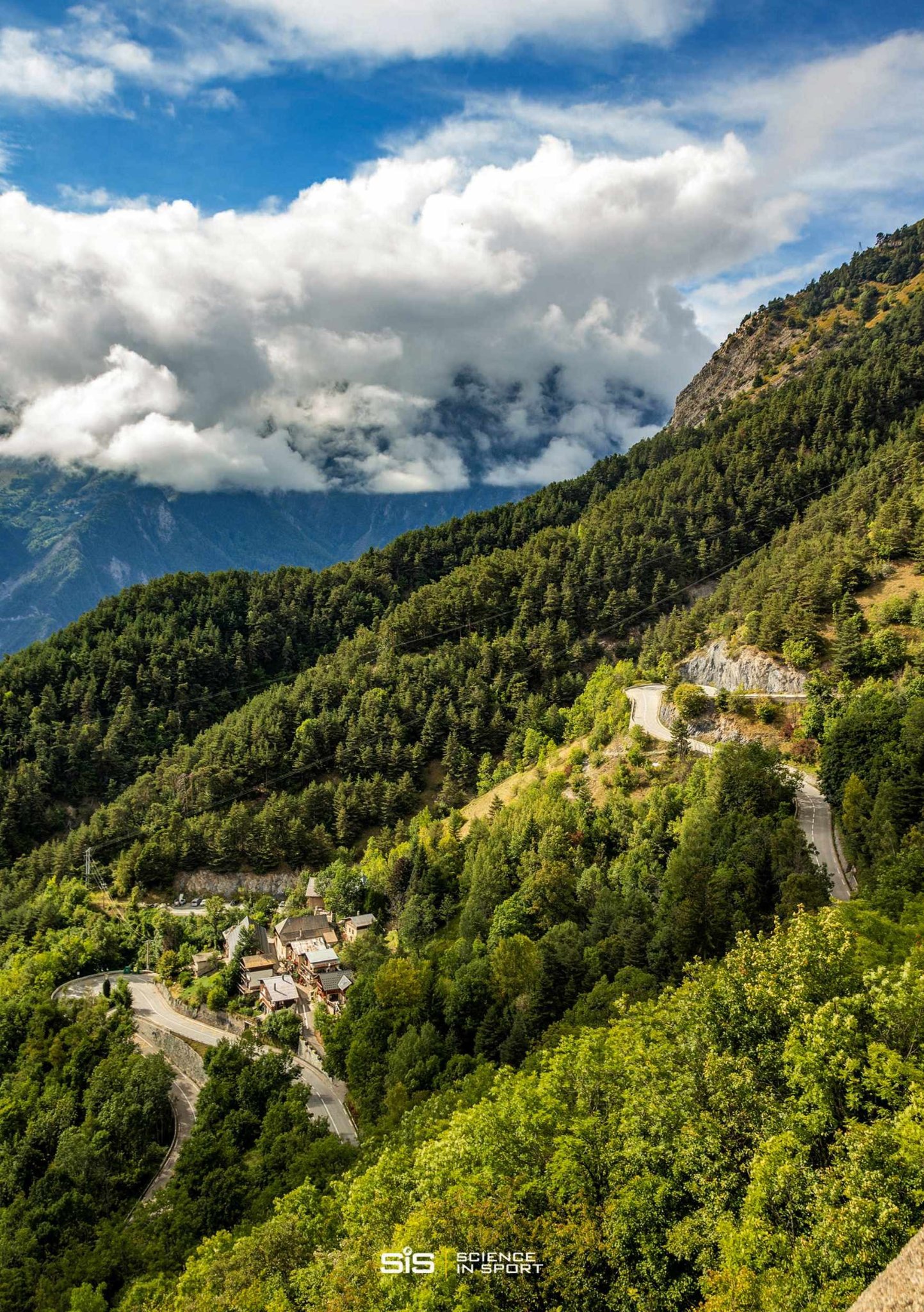
08 Le Grand-Bornand – Alpe d’Huez
18 August / 149.9km
Did you know?
Riding high
The summit of the Col du Glandon at 1,924 metres is the highest point of the entire 2024 Tour de France Femmes
Smart money
Yellow fever
Demi Vollering (SD Worx-Protime) to seal the general classification by winning the stage

“A truly beautiful mountain stage with two big climbs: the highest point of this third edition of the Tour de France Femmes avec Zwift comes on the Col du Glandon (1,924m), which will be tackled via its hardest side (19.7km at 7.2%); then, for the grand finale, we have the mythical 21 hairpins of Alpe d’Huez, where the 2024 champion is destined to emerge.” Beautiful, for sure, but also rather torrid. On paper it’s the toughest stage seen yet in the nascent Tour de France Femmes and, as Rousse says, the day that will likely decide the race. The difficulty begins at around the halfway mark of this long mountain stage, at the foot of the lesser-spotted Glandon. Once a regular of the Tour de France route, this long, wearing climb – popularised in the Marmotte gran fondohas not featured since 2015.
Over the other side following a long descent punctuated by short climbs, there’s a chunky valley stretch before the fun begins on Alpe d’Huez, a climb that’s no stranger to the men’s race. Climbed 32 times since 1952, its 8.1% over 13.8km is the most iconic stretch of road in professional cycling, made so as much by the boisterous fans that gather on it as the feats carved out by the riders. Hopefully similar scenes will be created here today, and its first appearance in the Tour de France Femmes isn’t its last.

